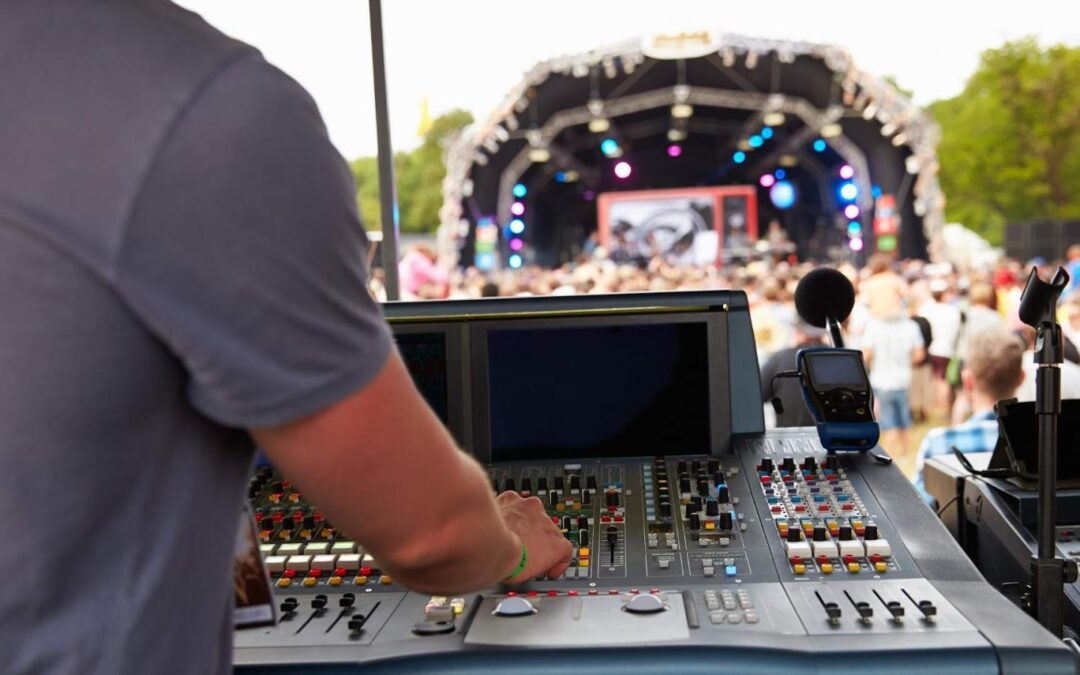From studio production to live sound engineering, there is a clear and exciting journey that many audio professionals embark upon in their careers. It’s not a transition to take lightly, though, as the dynamics and demands of live sound vastly differ from those in a studio environment. Let’s dive into the mechanics of this transformation from studio recording to live sound.
Understanding the Differences
Studio recording and live sound are two distinct realms within the audio industry. In the studio, perfection is the goal – every note, every tone, every layer is meticulously crafted, often with unlimited takes. The environment is controlled, and engineers have access to various high-end equipment, software, and post-production techniques to shape the sound precisely as desired.
Live sound, on the other hand, is a raw and spontaneous experience. There’s an undeniable energy that comes with live performances, and as a live sound engineer, your role is to capture and enhance this energy, dealing with variables that are often outside of your control. Live sound is real-time, immediate, and transient – there are no retakes or post-production amendments.
Transitioning from Studio to Live Sound
As a studio engineer transitioning to live sound, your strong foundation in understanding audio and acoustic principles will serve you well. However, live sound calls for a fresh perspective and approach. Here are some crucial considerations:

Blog Post
"*" indicates required fields
By submitting this form, I authorize Musicians Institute (MI) to make or allow the placement of calls, emails, and texts to me at the phone number that I have provided, including through the use of automated technology, or a prerecorded or artificial voice. I understand that I am not required to provide my phone number as a condition of purchasing any property, goods, or services. I agree to the terms of MI’s Privacy Policy. MI will not sell or rent your information to third parties, and you may unsubscribe at any time.
Adaptability and Speed
Adaptability and speed are crucial for sound engineers in live music event production. They must quickly solve technical issues without disrupting the show. Unforeseen problems can arise, such as equipment malfunctions or last-minute changes. Sound engineers must think on their feet, be flexible in their approach, and possess strong problem-solving skills. Time is of the essence, and they must work swiftly while maintaining composure under pressure. By mastering adaptability and speed, sound engineers deliver high-quality sound and create memorable experiences for performers and audiences.
Equipment Knowledge
While there’s a crossover between the gear used in both fields, live sound has its own unique set of equipment. Equipment knowledge is crucial in live music event production. Sound engineers need to be familiar with amplifiers, PA systems, stage monitors, mixing desks, and live microphones. Each piece of equipment has its own unique role and requirements in a live sound setup. Sound engineers must understand how to set up, configure, and optimize these components to achieve the desired sound quality and provide a seamless experience for performers and audiences.
Understanding the Venue
Understanding the venue and its acoustics is crucial in live music event production. Sound engineers must adapt to the unique characteristics of each venue. Sound checks and room measurements help optimize the sound system for the space. Adapting to the venue’s acoustics involves identifying and addressing issues like reverberation and frequency imbalances. By understanding the venue, sound engineers ensure a high-quality audio experience for performers and the audience.
People Skills
People skills are essential in live sound production. Sound engineers need to communicate and collaborate effectively with artists, venue staff, event managers, and the audience. Strong communication skills build trust, ensure a clear understanding of requirements, and foster a positive working environment. Effective people skills contribute significantly to the success of a live music event.
Develop Your Skills with MI’s Live Music Event Production Program
At the Musicians Institute, we recognize the challenges and opportunities presented by the transition from studio recording to live sound. Our Live Music Event Production program is tailored to equip you with the essential skills and understanding needed to make this transition seamlessly. We provide hands-on training with the latest live sound equipment, teaching you not only the technical aspects of the job but also industry standards, safety protocols, and soft skills crucial for success in the field.
If you’re ready to embark on an exciting career in live sound and event production, our Live Music Event Production program could be the perfect launchpad. As a Live Music Event Production student, you’ll gain access to a network of industry professionals and potential employers, ensuring you’re fully equipped for success upon graduation.
Isn’t it time you amplified your career potential with live sound? Visit us at MI.edu to learn more about the Live Music Event Production program or any of our other programs and apply today! Don’t just dream about working in the live music industry—make it happen with Musicians Institute’s Live Music Event Production program.
Musicians Institute is the leader in contemporary music education offering certificates to Masters degrees in programs spanning instrument performance, electronic production, music business, and everything in between.
For more information on all programs offered, please visit here: mi.edu/programs-degrees/
For more information on MI Online programs, please visit here: mi.edu/programs/mi-online/

